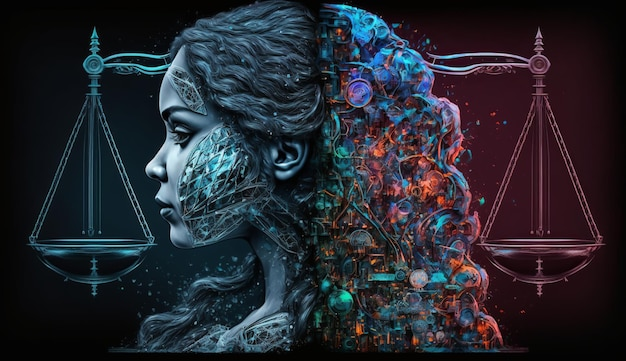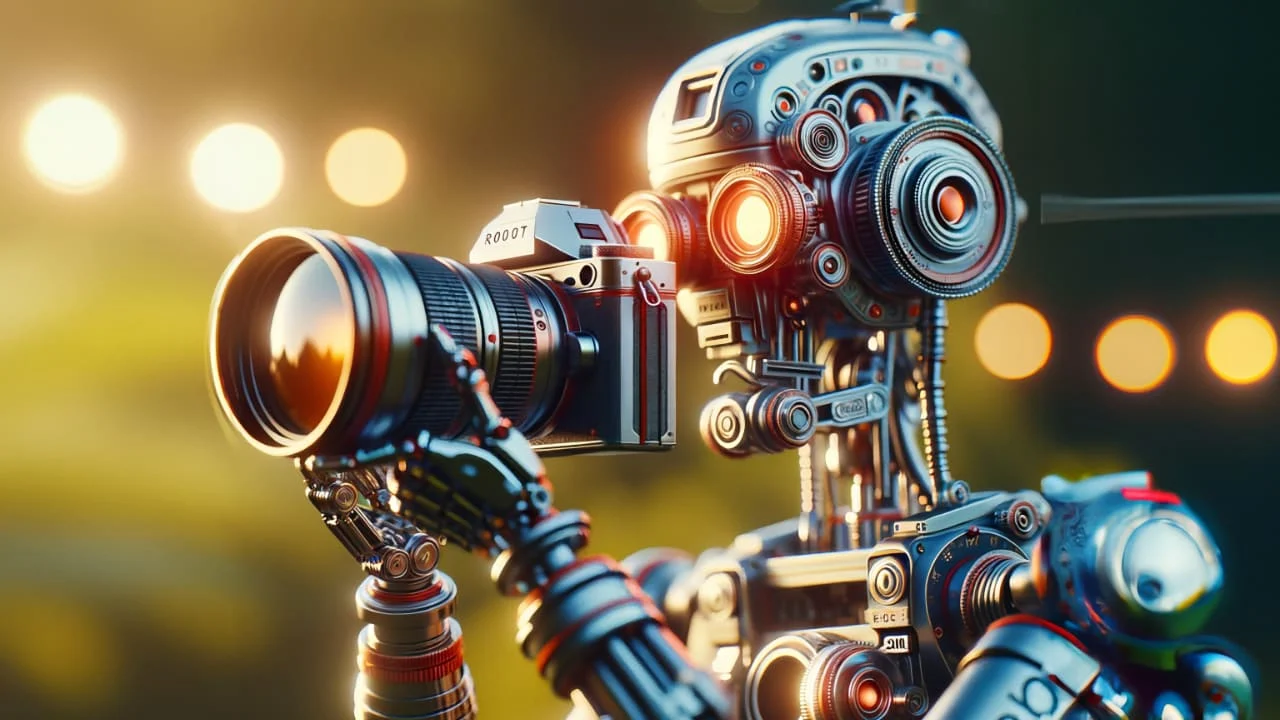AI and social justice are increasingly intertwined in contemporary discussions about technology’s role in society, raising vital questions about ethics and equity. Renowned sociologist Ruha Benjamin emphasizes that the advancements in the future of technology should not come at the cost of marginalized communities. In her Tanner Lectures, she critiques how AI has often been framed as a neutral tool, while in reality, it can perpetuate societal ills and systemic oppression. By examining the relationship between AI ethics and social justice and technology, we can illuminate the potential for transformative futures that prioritize the well-being of all individuals rather than the interests of a wealthy elite. Urging a collective reimagining of these technologies, Benjamin invites society to challenge the status quo and seek innovative solutions that promote inclusivity and understanding.
The connection between artificial intelligence and equitable societal structures is becoming a focal point in modern technological discourse. Scholars like Ruha Benjamin argue for a more ethical approach to technological development that integrates social justice into its framework. In essence, the moral implications of automated systems and decision-making algorithms demand scrutiny, particularly in their impact on opressed populations. Exploring the future of technology with a lens on fairness and inclusion can lead to revolutionary outcomes that address historical injustices. Emphasizing diverse knowledge systems, Benjamin advocates for a creative vision of AI that transcends simple computational efficiency, fostering a more just world.
Imagining a Positive Future with Technology
Ruha Benjamin emphasizes that the future of technology does not have to be dictated by a dystopian narrative. Instead, she challenges individuals to envision a radically different world shaped by creativity and innovation rather than solely by profit-driven motives of the tech elite. This reimagining of the future calls for a deeper consideration of what is possible when we allow imagination to steer technological advancement, rather than fearful speculation about artificial intelligence and surveillance. By breaking out of conventional thinking, societies can explore transformative futures that prioritize collective welfare, using technology as a tool for empowerment instead of oppression.
The anxiety surrounding AI and its implications often overshadows the potential it holds for the greater good. Benjamin urges us to rethink our assumptions about progress, particularly when it comes to social justice. By reconsidering the narratives produced by technology executives, individuals can cultivate a more critical awareness of how these tools impact marginalized communities. It’s vital to ask how technology can serve as a bridge to equality rather than a barrier, highlighting the necessity for creative thinking in developing future innovations that support and uplift every member of society.
Dismantling preconceived notions about AI technology requires a fresh perspective on its role in our lives. Benjamin calls for a shift from viewing technological advancements as inherently neutral to understanding their potential moral implications. This involves acknowledging that the benefits of AI must not only be accessible to the privileged few but rather should create opportunities for those historically marginalized. Incorporating voices from various disciplines, especially arts and humanities, can inform a more comprehensive understanding of these technologies and guide ethical considerations in their application.
Additionally, the pursuit of a positive technological future includes advocating for public goods that directly improve quality of life. Benjamin’s critique of the obsession with high-tech solutions without addressing fundamental societal needs raises the question of priorities in our innovation landscape. She invites academia and policymakers to forge pathways that support vibrant communities through accessible technologies, challenging perceptions of impracticality surrounding essential services like transportation and housing. Reimagining these foundational elements can foster a society where tech innovations align with social justice values.
The Role of AI in Social Justice
Ruha Benjamin passionately articulates the intersection of AI and social justice, highlighting how advancements in technology can perpetuate systemic inequalities if left unchecked. She points out that while AI may be presented as a solution to social issues, often it exacerbates existing disparities. For instance, the deployment of facial recognition technology has disproportionately targeted racially marginalized communities, leading to wrongful imprisonments and violations of privacy. If AI development is led without a moral compass, it risks enforcing a new wave of discrimination concealed beneath the guise of efficiency.
Benjamin’s critical lens calls for intentional inclusivity in the development of AI systems, emphasizing the need for diverse perspectives to inform ethical frameworks. The conversations surrounding AI ethics need to evolve to include the lived experiences of those directly affected by technology. Incorporating insights from various stakeholders ensures that the solutions derived from AI do not repeat the historical mistakes of exclusion and injustice, ultimately fostering a technological landscape that embraces equity and social responsibility.
The discussion surrounding AI inevitably brings with it questions about the responsibility of those creating these technologies. Benjamin argues for accountability among tech elites and advocates for transparency in AI operations. She asserts that technology needs to serve humanity — not the other way around. By embedding principles of social justice into the core functions of AI applications, we can steer society away from potential pitfalls while paving the way for innovation that genuinely benefits all.
Going forward, embracing creativity in problem-solving within the realms of AI technologies acts as a catalyst for social change. Benjamin invites us to think beyond the current limitations imposed by traditional views of technology. Her urging for a transformative future means not only reconsidering technological innovations but also setting the stage for a dialogue that reconciles ethical concerns with technological potential. A focus on creativity, community engagement, and ethical considerations can lead to AI systems designed to dismantle rather than uphold oppressive structures.
The Ethical Implications of AI Development
The ethical implications of AI development are at the forefront of Ruha Benjamin’s discourse, where she questions the motivations behind the technologies being touted as the future of innovation. She challenges the narrative that AI technologies, simply because they rely on algorithms, are morally neutral and objective. In fact, these systems are often built on biases that reflect historical inequities, thus perpetuating a cycle of oppression rather than liberation. Benjamin implores society to critically assess who benefits from these advancements and how they could be redirected to foster social equity and justice.
Furthermore, the call for ethical considerations in AI development extends to how society defines progress. Benjamin urges that public goods should not be overshadowed by shiny new technologies that promise efficiency but fail to address the needs of the most vulnerable communities. The conversation about AI ethics must include discussions around access to technology, privacy rights, and the implications of data-driven decision-making processes that could marginalize specific groups. By advocating for a more conscientious approach, she pushes for a future in which AI is both innovative and equipped with a robust ethical framework.
Therein lies the responsibility of tech developers: to be aware of the social implications of their creations and actively work to counteract them. Benjamin’s insights remind us that technology should serve humanity, not exacerbate its challenges. An ethical approach to AI can pave the way for innovations that prioritize human rights and dignity, framing technology as a collaborator in achieving social justice rather than a means of domination.
In conclusion, the ethical implications surrounding AI development demand a collective effort to redefine what progress looks like in our society. By centering social justice at the heart of technological advancement, we can create a future where AI actively contributes to dismantling existing inequalities, fostering a rich tapestry of understanding across diverse communities. This nurturing of ethical sensitivity within the realm of technology can ensure that innovations lead to a more equitable world for all.
Rethinking the Narrative Around AI and Society
Ruha Benjamin encourages us to rethink the mainstream narrative surrounding AI and its integration into society, advocating for a future that is not merely dictated by technocratic beliefs. She emphasizes the necessity of dismantling harmful stereotypes and preconceived notions that equate technological advancement with social progress. This narrative often overlooks the detrimental impacts that these technologies can produce, particularly for marginalized communities. By challenging these dominant narratives and spurring critical dialogues, society can foster a more inclusive vision of what technology can and should do for humanity.
With an emphasis on imagination and creativity, Benjamin’s approach invites us to envision a future where technology does not serve to reinforce existing inequalities but instead acts as a catalyst for change. By positioning creativity at the forefront, we open the door to transformative futures where technology works hand in hand with social justice initiatives. This shift requires collaboration across disciplines, acknowledging that the solutions we design have implications extending far beyond mere profit margins or efficiency metrics.
Moreover, as technology becomes increasingly intertwined with our daily lives, restructuring the conversation demands the inclusion of artistic voices and perspectives in the dialogue surrounding AI development. Benjamin avers that to ensure equitable outcomes, those creating and implementing these technologies must engage in a more nuanced understanding of society’s diverse needs. This means going beyond technical know-how and incorporating the insights gained from the arts and humanities to foster deeper connections and empathy within technological innovations.
In essence, rethinking the narrative around AI and society is not just about technological outreach; it’s about recognizing technology as an extension of collective human values and aspirations. Benjamin’s insights provide a path toward a future that not only embraces the potential of AI but actively engages with its ethical considerations, ultimately constructing a society where technology enhances our social fabric rather than frays it.
AI Ethics: Transforming Futures
The discourse around AI ethics, as highlighted by Ruha Benjamin, underscores a critical examination of how technology can transform futures without compromising ethical standards. While AI presented as an inevitability can invoke fear and skepticism, Benjamin argues for a proactive approach that interrogates these technologies’ ethical implications. By integrating ethics into the design and implementation of AI systems, we can create frameworks that not only preemptively address potential harms but also enhance the societal good.
One prominent challenge is in navigating between innovation and ethics. Benjamin urges developers to evaluate the societal impact of their technologies critically. Rather than conforming to narratives that de-emphasize moral considerations, a commitment to ethical foresight can lead to the creation of AI systems that prioritize human dignity and rights. This ethical grounding fosters transformative futures where technology serves as a vehicle for equity and inclusivity.
Furthermore, ethical engagement in AI development acts as a powerful ally in combatting systemic injustices often exacerbated by technological advancements. Ruha Benjamin emphasizes that a robust ethical framework must include varied perspectives, particularly from marginalized groups who bear the brunt of these technologies’ adverse effects. Engaging in dialogue that centers on ethics will help dismantle oppressions that have historically marginalized specific communities, transforming the narrative around technological progress into one of hope and equitable potential.
The road ahead is clear: prioritizing ethics in AI development is not merely an afterthought; it is imperative for nurturing a future that values humanity above profits. By committing to ethical practices and involving diverse voices in AI innovations, we can turn the tide toward a future defined by justice, compassion, and shared prosperity.
Creativity as a Tool for Social Change
In her discourse on the role of creativity in technological advancements, Ruha Benjamin posits that imagination is a crucial tool for driving social change. She recommends that society move beyond viewing technology solely through a utilitarian lens and instead embrace creative thinking, which has the power to envision transformative futures. This requires a shift in mindset where innovation aligns with social needs and human-centric values, fostering an environment that encourages collaboration across various fields.
Creativity, when interwoven with technology, allows for the exploration of new perspectives and innovative solutions to longstanding societal issues. By inviting artists, humanists, and technologists to work together, the possibility arises to co-create solutions that address the nuances of social challenges. This collaborative approach enriches the dialogue around the future of AI, ensuring that it is not only driven by efficiency but also by empathy, understanding, and the collective wisdom gathered from diverse experiences.
Moreover, Benjamin advocates for educational institutions to place greater emphasis on creativity and the arts in STEM education. By encouraging students to think creatively and critically about technology, we pave the way for the next generation of thinkers and innovators to reimagine technology as a tool for social good. This fusion of disciplines allows for the cultivation of holistic approaches that can harness AI’s potential while remaining anchored in ethical considerations.
Embracing creativity as a catalyst for social change thus redefines the role of technology in our lives. It positions AI not merely as a tool for economic growth but as a conduit for enriching human experiences and promoting justice. Benjamin’s vision calls for a future where technology is not seen as a set of isolated tools but as a collaborative force that can drive us toward a society grounded in dignity, equality, and creativity.
Frequently Asked Questions
How does AI impact social justice and technology according to Ruha Benjamin?
Ruha Benjamin highlights that AI technologies often exacerbate existing injustices rather than alleviate them. For example, she points out that facial recognition software can lead to wrongful arrests, while automated healthcare systems may prioritize some individuals over others based on biased algorithms. Her work emphasizes the need for ethical considerations in AI to ensure the protection of marginalized communities.
What role does creativity play in the future of technology and social justice?
In her discussions, Ruha Benjamin advocates for incorporating creativity and critical thinking into conversations about the future of technology. She believes that reimagining AI and other technologies through a lens of social justice can lead to more equitable solutions, moving beyond traditional metrics of efficiency and profit.
Why is it important to examine the ethics of AI in relation to social justice?
Examining the ethics of AI is crucial because these technologies, while often perceived as neutral, can perpetuate systemic injustices. Ruha Benjamin argues that without an ethical framework that prioritizes social justice, AI can misuse mathematical models that harm marginalized groups, similar to past ideologies like eugenics.
What does Ruha Benjamin suggest about the narratives created by tech elites concerning AI and social justice?
Ruha Benjamin critiques the narratives promoted by tech elites, who often portray AI advancements as altruistic. She argues that these narratives are frequently driven by self-interest, overshadowing the urgent need for genuine efforts aimed at social justice and equitable technology solutions.
How can we envision transformative futures in the context of AI and social justice?
To envision transformative futures, Ruha Benjamin encourages collective imagination that challenges the status quo. She urges individuals and institutions to consider innovative solutions that prioritizes public goods like free transportation and affordable housing, rather than solely focusing on extravagant technological advancements.
What potential dangers does AI pose to social justice according to critics like Ruha Benjamin?
Critics like Ruha Benjamin caution that AI can entrench social inequities if left unchecked, as algorithms might reinforce biases found in data sets. The potential misuse of these technologies could further marginalize disadvantaged communities, hence the importance of embedding ethical considerations in AI development.
What is the relationship between AI ethics and the future of technology in the context of social justice?
The relationship between AI ethics and the future of technology is deeply intertwined with social justice. Ruha Benjamin argues that integrating ethical considerations into AI can help prevent the reinforcement of harmful stereotypes and biases, leading to technology that genuinely serves the collective good rather than a privileged few.
| Key Points | Description |
|---|---|
| Radically Different Futures | Ruha Benjamin encourages the public to envision a future that contrasts with the tech elite’s dystopian narratives. |
| Critique of Tech Elites | Benjamin warns against trusting tech billionaires to solve human suffering, highlighting their self-serving interests. |
| AI Misuse | AI technologies often perpetuate oppression, as seen in erroneous facial recognition and biased healthcare systems. |
| Math vs. Moral Decision Making | AI is portrayed as morally neutral; however, it’s detrimental to marginalized communities when divorced from social context. |
| Imagining Alternatives | Benjamin advocates for prioritizing creativity and comprehensive societal understanding over pure technical knowledge. |
| Call to Action | A shift towards innovative thinking is necessary to envision systems that transcend current societal constraints. |
Summary
AI and social justice should go hand-in-hand to ensure a future that is equitable for all. Ruha Benjamin’s insights challenge us to rethink how technology intersects with human values, especially in light of historical marginalization. By emphasizing creativity and integrative thinking, we can reshape the framework within which AI operates, steering it away from reinforcing oppression and toward a just society where every individual thrives.



